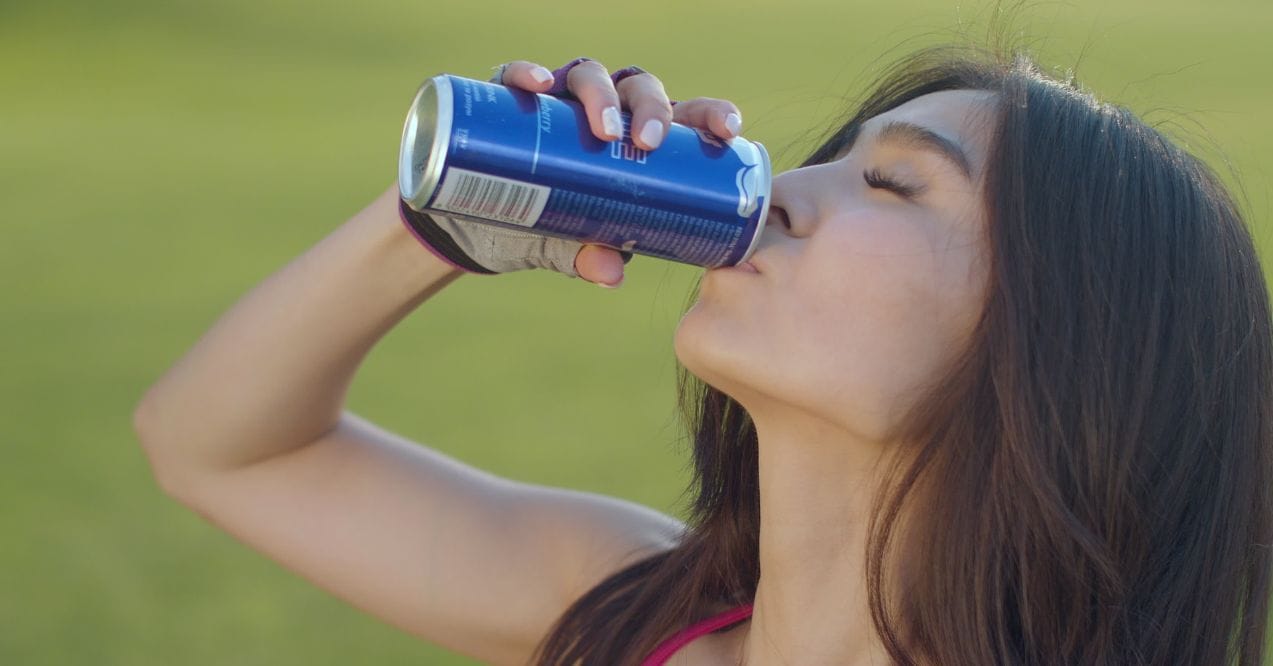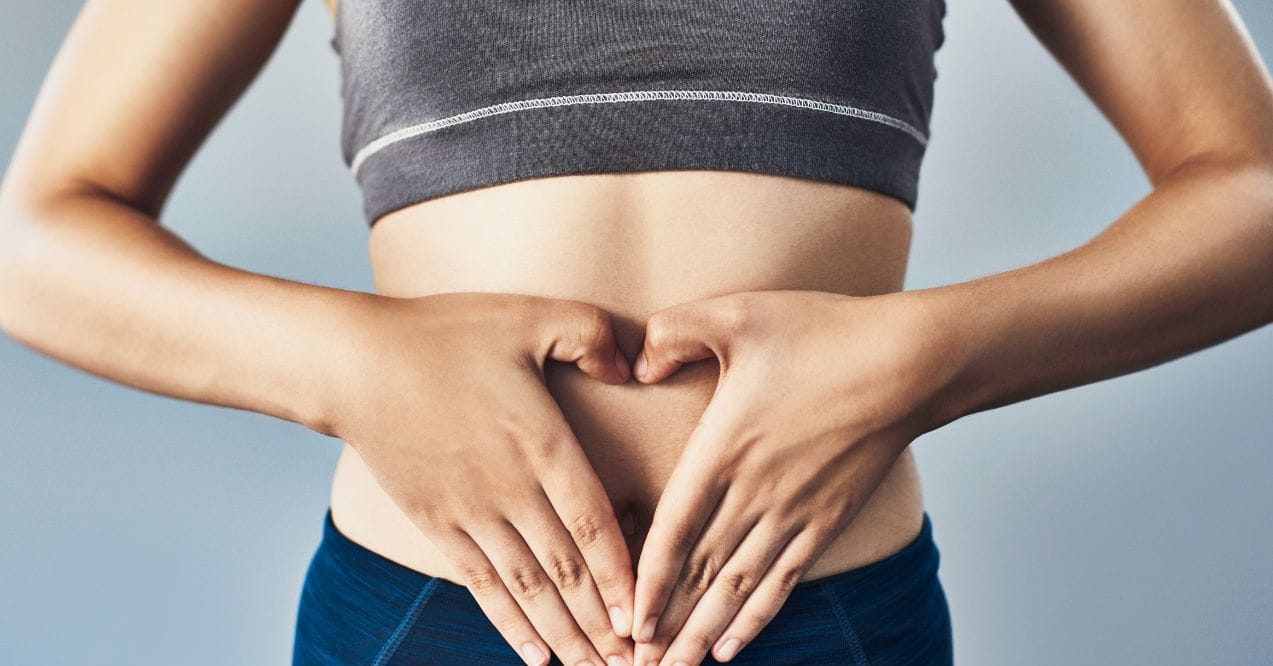Why Do Energy Drinks Make Me Sleepy?
Medically reviewed by our experts


If you’ve wondered ‘why do energy drinks make me sleepy?’, this article explores the science behind this paradox. We’ll cover caffeine’s role, sugar crashes, neurotransmitters, and what your body might be signaling when energy drinks backfire.
Key Article Findings
- Energy drinks can make you sleepy due to adenosine rebound, sugar crashes, and caffeine tolerance
- Individual biology plays a major role in how your body processes stimulants
- Alternative energy-boosting strategies may work better for those who experience fatigue from energy drinks
How Energy Drinks Work
Energy drinks are designed to wake you up and keep you alert through a combination of stimulating ingredients. The main active component is typically caffeine, with additional ingredients like taurine, B vitamins, and various herbal extracts. Most energy drinks also contain high amounts of sugar or artificial sweeteners.
When you’re consuming an energy drink, the caffeine quickly enters your bloodstream and travels to your brain. There, it works by blocking the effects of adenosine, a compound that naturally builds up during the day and makes you feel tired. Caffeine also stimulates orexin, a neurotransmitter in the brain that promotes wakefulness and alertness.
For many people, this formula works effectively to boost your energy levels, at least temporarily. However, if energy drinks make you tired instead of energized, you’re not alone.This reaction happens to many people and stems from how these drinks affect your body’s natural processes.
Reasons Energy Drinks May Make You Sleepy
While energy drinks are designed to boost alertness, they can paradoxically cause sleepiness for many people. Several key mechanisms explain why that initial jolt might quickly fade into unexpected fatigue. Let’s explore the main reasons why energy drinks make you sleepy instead of providing lasting energy.
Adenosine Rebound Effect
Caffeine works by attaching to adenosine receptors in your brain, preventing adenosine from binding to them. This temporarily blocks the sleepy feeling adenosine typically causes. However, your body doesn’t stop producing adenosine during this time—it keeps building up.
When the caffeine eventually wears off, all that accumulated adenosine rushes to the now-available receptors. This creates what’s known as the “rebound effect,” where you may suddenly feel even more tired than before.
Sugar Crash
Most energy drinks contain significant amounts of sugar—sometimes approaching 50 grams of added sugar a day in just one can. This sugar provides a quick energy boost as your blood sugar level rises. However, your body responds by producing insulin to bring those levels back down.
This rapid spike and drop in blood glucose is known as a “sugar crash.” Your blood sugar level may actually dip below your baseline, leaving you feeling more fatigued than before. Many people who say, “energy drinks make me sleepy” are actually experiencing this sugar crash effect.
This reaction may be stronger in those with blood sugar management challenges, which is why some people explore supplements for insulin resistance to help maintain more stable energy levels.
Caffeine Tolerance or Overuse
Regular consumption of caffeinated beverages can lead to tolerance, where your body becomes less responsive to caffeine’s stimulating effects. Over time, you might need more caffeine to feel the same energy boost.
Paradoxically, some people develop a reversed reaction to caffeine after long-term use. Instead of feeling energized, consuming caffeinated drinks triggers tiredness. This caffeine crash can happen quicker and more intensely in people who regularly consume high amounts of caffeine, making energy drinks counterproductive.
Other Factors That Contribute to Feeling Tired
Beyond the direct effects of caffeine and sugar, several additional factors may explain why energy drinks make you tired. These elements interact with the stimulants in energy drinks and can amplify feelings of fatigue rather than reducing them. Your body’s hydration status and overall health play significant roles in how you respond to these beverages.
Dehydration and Nutrient Imbalance
Caffeine acts as a diuretic, increasing urine production and potentially leading to dehydration. Even mild dehydration can cause fatigue and mental fog. Many consumers don’t realize that while they think they’re hydrating by drinking liquid, the caffeine in energy drinks may actually reduce their body’s water content.
Electrolyte imbalances can worsen this effect. Some energy drinks contain amino acid supplements like taurine, which may affect how your body processes caffeine. The combination of dehydration and altered nutrient balance may explain why you feel sleepy after what should be a stimulating beverage.
Underlying Health or Lifestyle Factors
Your reaction to energy drinks doesn’t happen in isolation—it’s influenced by your overall health and habits. Poor sleep quality, high stress levels, or inconsistent eating patterns can all magnify fatigue after consuming stimulants.
Food and drinks interact with your existing physical state. If you’re already sleep-deprived, the temporary boost from an energy drink might highlight your exhaustion once it wears off. This can leave you feeling even more tired than before, creating a cycle where drinks make me tired, yet I drink more to combat the fatigue.
Why Energy Drinks Don’t Work for Everyone
The effects of caffeine and other stimulants vary widely among individuals due to genetic differences. Some people metabolize caffeine quickly, meaning it leaves their system faster and provides less sustained energy. Others process it slowly, which can lead to jitters, anxiety, or disrupted sleep.
Some individuals have naturally lower levels of orexin, the wakefulness neurotransmitter that caffeine typically stimulates. Others may have B vitamin deficiencies that limit how effectively their bodies can convert food to energy.
All these factors may explain why caffeine makes you tired instead of alert. Your unique biology determines whether energy drinks will perk you up or paradoxically push you toward drowsiness.
Your unique biology determines whether energy drinks will perk you up or paradoxically push you toward drowsiness. Some people find that nervous system supplements help support balanced energy production by nourishing the same neurotransmitter systems that caffeine targets.
What to Try Instead of Energy Drinks
If you’ve found that energy drinks make you sleepy instead of providing the desired energy boost, don’t worry—you have options. There are both quick fixes and long-term strategies that may better support your energy needs without the crashes or fatigue that often follow energy drink consumption. These alternatives work with your body’s natural systems rather than temporarily overriding them.
Better Energy-Boosting Alternatives
If energy drinks make me sleepy, several alternatives may provide more stable energy without the crash:
- Green tea – Contains less caffeine plus L-theanine, which may promote calm alertness
- Water with electrolytes – Combats fatigue from dehydration without stimulants
- Protein-rich snacks – Provide sustained energy through balanced nutrition
- Brief physical activity – A 10-minute walk can increase blood flow and alertness
These options avoid the high caffeine content and sugar found in most energy drinks. Green tea, for example, has about 30-50mg of caffeine compared to energy drinks’ 150-300mg, potentially reducing the rebound effect while still providing mild stimulation.
Long-Term Strategies to Improve Energy
For lasting improvement in your energy levels, consider these habits:
- Consistent sleep schedule – Going to bed and waking up at the same times helps regulate your body’s natural energy cycles
- Regular meals with protein, fiber, and healthy fats – Stabilize blood sugar throughout the day
- Hydration routine – Drinking water consistently before feeling thirsty
- Movement breaks – Short activity sessions spread throughout the day
- Balanced supplements – Products like ActiveSpan has natural ingredients that support energy production without the crashes associated with caffeine and sugar
These approaches address the root causes of fatigue rather than temporarily masking them. Over time, they may reduce your dependence on stimulants and help your body maintain energy more naturally.
Conclusion
The post-energy drink slump isn’t just in your head. When asking why do energy drinks make me sleepy, the science points to specific biological reactions: your body’s flood of adenosine after caffeine wears off, the rapid drop in blood sugar levels, and your personal genetic caffeine processing speed.
Next time fatigue hits after your energy drink, skip the second can. Try a small protein snack, a 10-minute outdoor walk, or simply more water. Your energy problems won’t be solved by fighting your body’s signals—they’ll improve by working with them. That tired feeling might be the wake-up call you needed to find energy sources that actually work for your unique biology.
Energy drinks may make you feel more tired due to the adenosine rebound effect when caffeine wears off, sugar crashes that follow blood sugar spikes, or your individual caffeine metabolism rate.
Feeling sleepy after caffeine isn’t harmful, but it may signal caffeine sensitivity, tolerance, or that the particular stimulant doesn’t work well with your body chemistry.
Most health experts suggest limiting caffeine to 400mg daily for adults. However, sensitive individuals, those with certain health conditions, or people over 60 may need to consume less.
Not all energy drinks cause crashes for everyone. Those with less sugar and moderate caffeine levels may produce milder effects, but individual responses vary widely.
Healthy alternatives include green tea, water with electrolytes, small protein-rich snacks, brief physical activity breaks, or a short 20-minute nap if possible.
Alsunni, A. A. (2015). Energy drink consumption: beneficial and adverse health effects.
Reichert, C. F., Et Al. (2022). Adenosine, caffeine, and sleep–wake regulation: state of the science and perspectives. Journal of Sleep Research, 31(4).
Mantantzis, K., Et Al. (2019). Sugar rush or sugar crash? A meta-analysis of carbohydrate effects on mood. Neuroscience & Biobehavioral Reviews, 101, 45–67.
Van De Walle Ms Rd, G. (2020). Caffeine tolerance: fact or fiction? Healthline.
Costantino, A., Et Al. (2023). The Dark Side of energy drinks: A comprehensive review of their impact on the human body. Nutrients, 15(18), 3922.
Barta, K. (2017). Healthy energy drinks: Is there such a thing? Healthline.
Cdces, N. O. M. R. L. (2023). Energy-boosting coffee alternatives: What to know. Harvard Health.
Harvard Health. (2024). 9 tips to boost your energy — naturally.
Popular Articles
Advertisement. This site offers health, wellness, fitness and nutritional information and is designed for educational purposes only. You should not rely on this information as a substitute for, nor does it replace, professional medical advice, diagnosis, or treatment. If you have any concerns or questions about your health, you should always consult with a physician or other health-care professional. Do not disregard, avoid or delay obtaining medical or health related advice from your health-care professional because of something you may have read on this site. The use of any information provided on this site is solely at your own risk.







